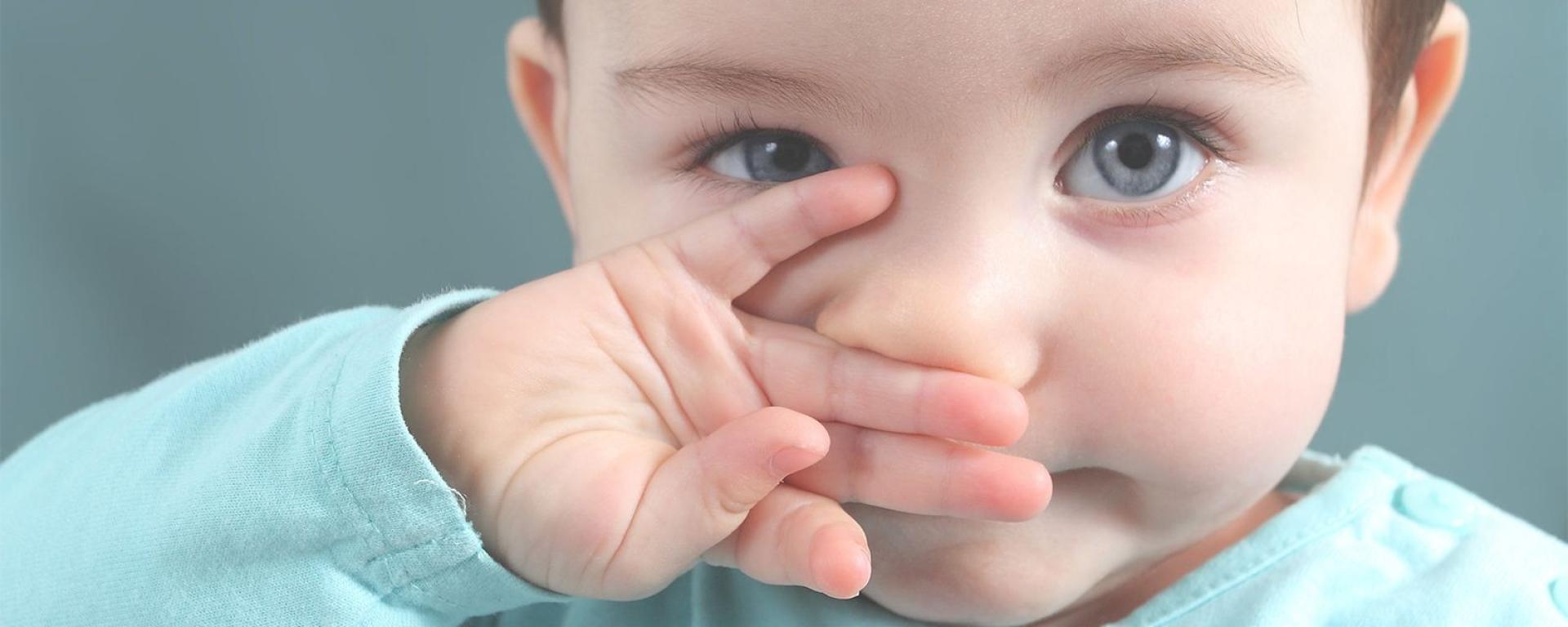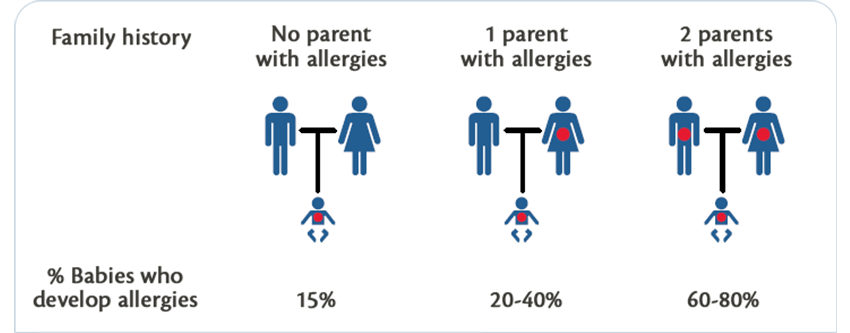At a glance
Family history can increase the risk of developing allergies such as asthma in babies
Breastfeeding is the best way to help prevent allergies including eczema in babies
For babies at risk of allergies that aren’t breastfed, ask your GP or healthcare professional about specific hydrolysed formulas that have been clinically proven to reduce the risk of developing allergies
The good news is that most little ones will grow out of baby allergies in childhood
The number of people with hayfever, food allergies, eczema and asthma are all on the up. According to Allergy UK, a leading national allergy charity, half of all children in Britain are now affected by allergies, and one in five children are reported to develop eczema, with the highest incidence being in the first 12 months of their life. This is surprising stuff, but what causes allergies, and is there anything we can do to reduce their risk?
Symptoms of baby allergies
Having an allergy means your body overreacts to a normally harmless substance. It sees allergens like pollen or food as threats and produces antibodies to fight them. This results in an allergic reaction and baby allergy symptoms, including:
- Sneezing
- A runny or blocked nose
- Red, itchy and watery eyes
- Wheezing and coughing
- A red and itchy rash
- Worsening of asthma or eczema
Most reactions are mild and, although annoying, can be largely kept under control. But severe reactions, such as breathing difficulties or anaphylaxis can occasionally happen – these need immediate medical attention.
Are allergies inherited?
Chances of conditions such as eczema in babies increase if family members have a history of allergy. Even if one member has asthma or hayfever, there is a 20-40% chance of a baby developing an allergy. If both parents — or one parent and a sibling — have allergies, that risk rises to 60-80%. Some of these allergies will go away as a child gets older, although many are lifelong.
How to reduce the risk of your baby developing allergies
Breastfeeding is the best protection you can offer your baby against allergies. Studies show that infants exclusively breastfed for at least their first six months are less likely to develop eczema compared to babies fed formula milk containing cows’ milk protein.
- Breastfeeding reduces your baby’s exposure to allergens from food sources found in cows’ milk based formula, as well as certain weaning foods
- Breast milk contains antibodies that help support your baby’s immature immune system to fight allergic reactions
- Breast milk is also a good source of omega-3 fatty acids which helps with the development of the immune system and prevents allergies from developing
Is my baby at risk, or just a fussy eater?
Your baby can’t yet tell you what’s bothering them. But learning the difference between food allergies, intolerances and fussy eating can help you figure out if something’s wrong with your baby or your cooking. Find out how to deal with fussy eating and food allergies and intolerances.
IMPORTANT NOTICE: We believe that breastfeeding is the ideal nutritional start for babies and we fully support the World Health Organization’s recommendation of exclusive breastfeeding for the first six months of life followed by the introduction of adequate nutritious complementary foods along with continued breastfeeding up to two years of age. We also recognise that breastfeeding is not always an option for parents. We recommend that you speak to your healthcare professional about how to feed your baby and seek advice on when to introduce complementary feeding. If you choose not to breastfeed, please remember that such a decision can be difficult to reverse and has social and financial implications. Introducing partial bottle-feeding will reduce the supply of breast milk. Infant formula should always be prepared, used and stored as instructed on the label in order to avoid risks to a baby’s health.
For a full list of allergies, visit our allergies glossary.









